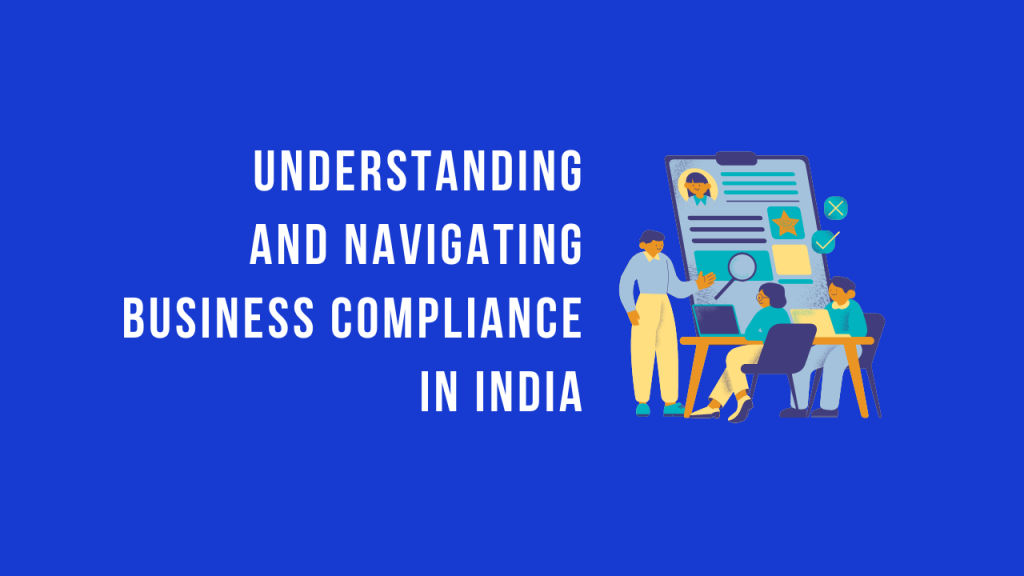Business Compliance in India
In the dynamic landscape of Indian business, understanding and navigating compliance is crucial for ensuring lawful operations and sustaining growth. Business compliance encompasses adherence to various legal, regulatory, and statutory requirements. This article explores the key aspects of business compliance in India and provides strategies to manage these obligations effectively.

Importance of Business Compliance
Compliance with laws and regulations is vital for multiple reasons:
- Legal Protection: Adhering to legal standards protects businesses from penalties, fines, and potential legal actions.
- Reputation Management: A compliant business maintains a positive reputation, fostering trust among customers, investors, and stakeholders.
- Operational Efficiency: Proper compliance ensures smooth business operations by avoiding disruptions due to legal issues.
Types of Business Compliance in India
Indian businesses must navigate various compliance requirements, including:
- Statutory Compliance: Relates to adhering to laws enacted by the government, such as labor laws, environmental laws, and tax regulations.
- Regulatory Compliance: Involves following guidelines set by industry-specific regulatory bodies, like SEBI for financial markets or FSSAI for food safety.
- Financial Compliance: Ensures accurate financial reporting and adherence to accounting standards and tax laws.
Key Areas of Business Compliance
Company Registration and Documentation
- Company Incorporation: Registering the business entity (e.g., Private Limited Company, LLP, etc.) with the Ministry of Corporate Affairs (MCA).
- Annual Filings: Submitting annual returns and financial statements to the Registrar of Companies (ROC).
Tax Compliance
- GST Compliance: Registering for GST, filing monthly/quarterly returns, and claiming input tax credit.
- Income Tax Compliance: Filing income tax returns, deducting TDS, and adhering to tax audit requirements.
Employment and Labor Laws
- Employee Provident Fund (EPF): Registering with the EPFO and making monthly contributions.
- Employee State Insurance (ESI): Providing ESI benefits to eligible employees.
- Labor Law Compliance: Adhering to regulations under the Shops and Establishment Act, Minimum Wages Act, and others.
Industry-Specific Compliance
- FSSAI License: Required for food businesses to ensure food safety standards.
- Pollution Control Board (PCB) Clearance: Necessary for industries with environmental impact.
Strategies for Effective Compliance Management
Stay Updated with Regulatory Changes
Regulations are subject to change. Keeping abreast of updates helps in timely compliance:
- Government Notifications: Regularly check government websites for updates.
- Professional Subscriptions: Subscribe to industry newsletters and legal updates.
Implement Robust Compliance Processes
Establishing structured processes ensures consistent compliance:
- Compliance Calendar: Maintain a calendar for all compliance deadlines.
- Standard Operating Procedures (SOPs): Develop SOPs for compliance activities.
Leverage Technology for Compliance
Technology can simplify compliance management:
- Compliance Software: Use software to track compliance requirements and deadlines.
- Digital Documentation: Maintain digital records of compliance documents for easy access and audit.
Engage Professional Advisors
Expert advice can enhance compliance strategies:
- Consultants and Advisors: Engage legal and tax consultants for specialized compliance guidance.
- Continuous Training: Provide ongoing training for staff on compliance matters.
Common Challenges in Compliance
Navigating compliance can be challenging due to:
- Complex Regulations: Multiple and often overlapping regulations.
- Frequent Changes: Regular updates and amendments to laws.
- Resource Constraints: Limited resources for compliance management in small businesses.
Conclusion
Understanding and navigating business compliance in India is essential for lawful operations and sustainable growth. By staying informed about regulatory changes, implementing robust processes, leveraging technology, and engaging professional advisors, businesses can manage compliance effectively. For comprehensive support in navigating these strategies, consider partnering with Finout. Our expertise in financial services, accounting, and business growth solutions ensures that your business operates efficiently, lawfully, and profitably. Whether you need assistance with tax planning, compliance, or overall financial management, Finout is here to help you achieve your goals and secure a prosperous financial future for your business.

